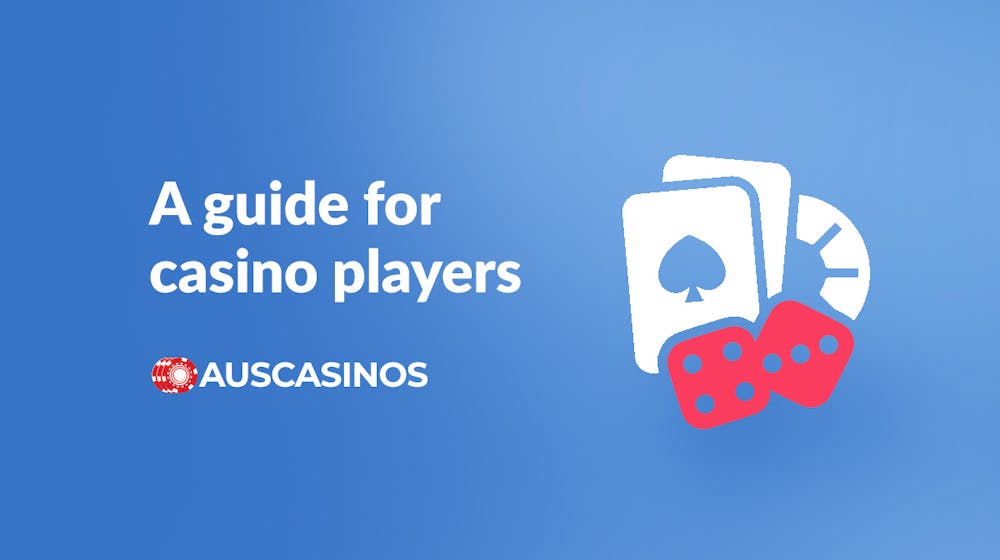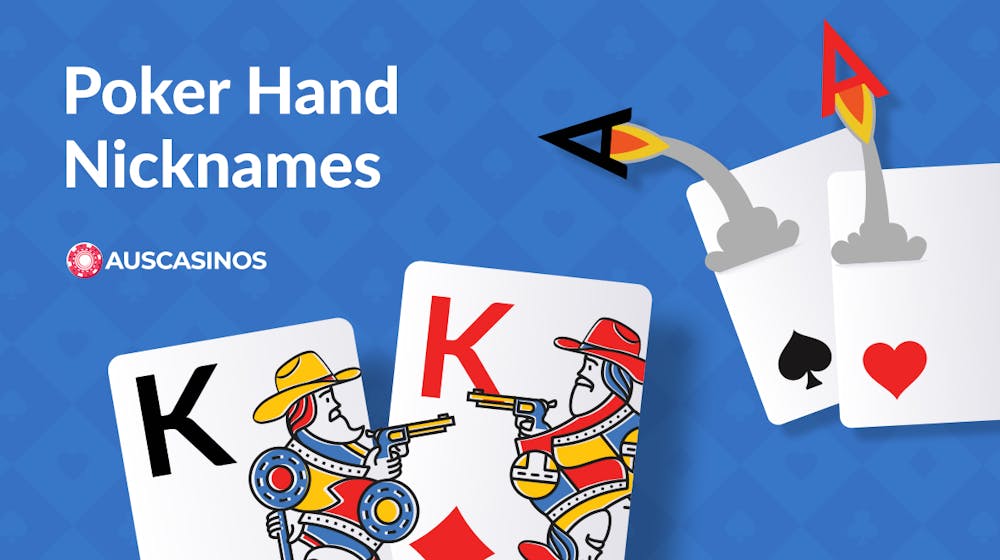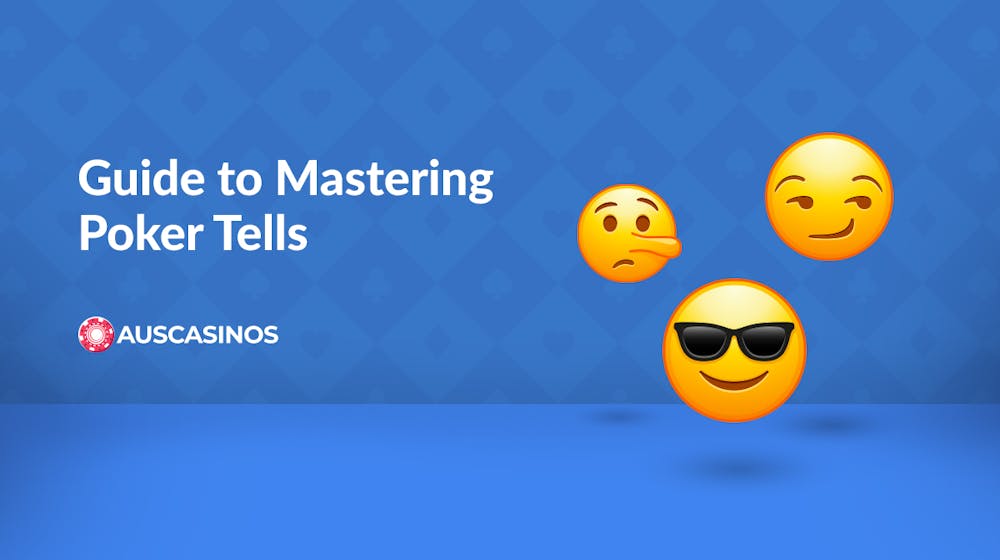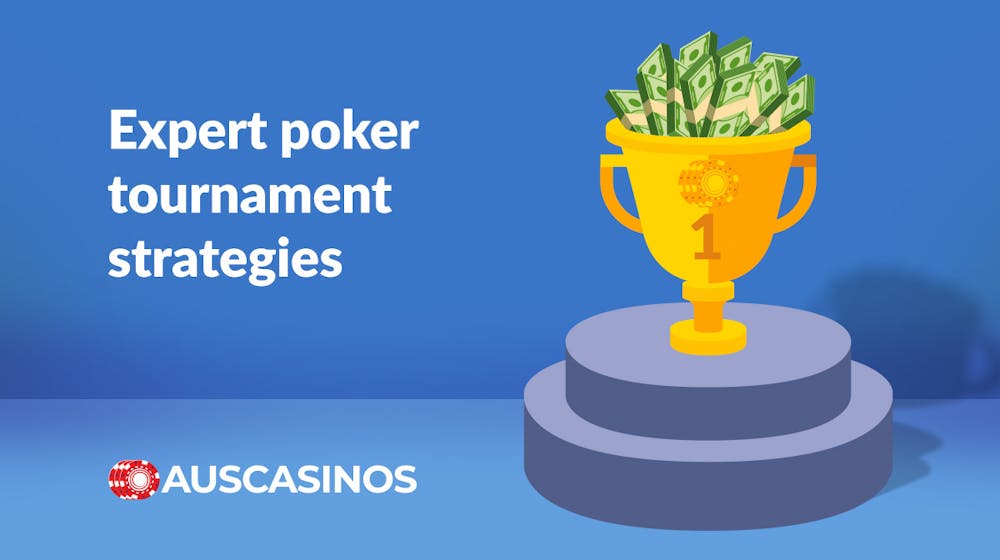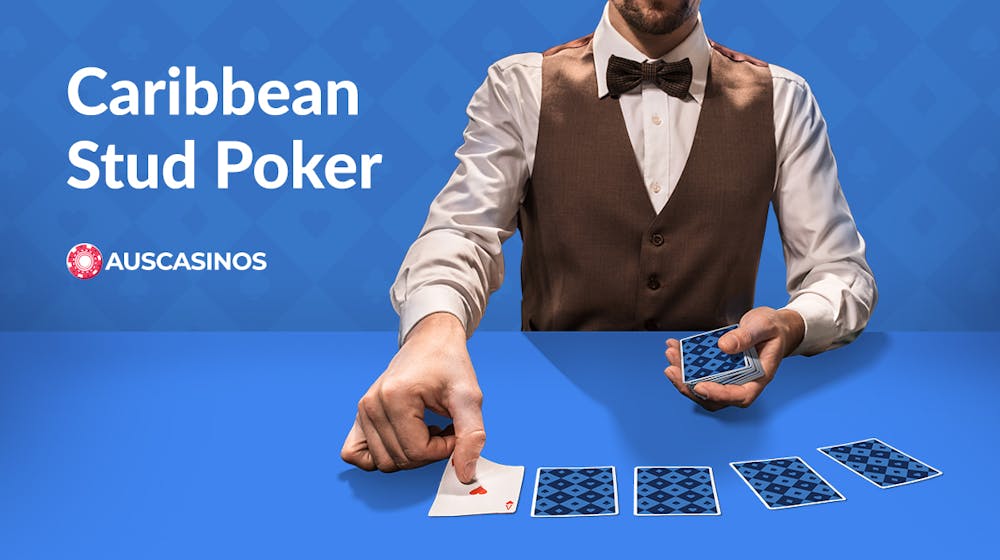Poker Psychology: Everything You Need to Know

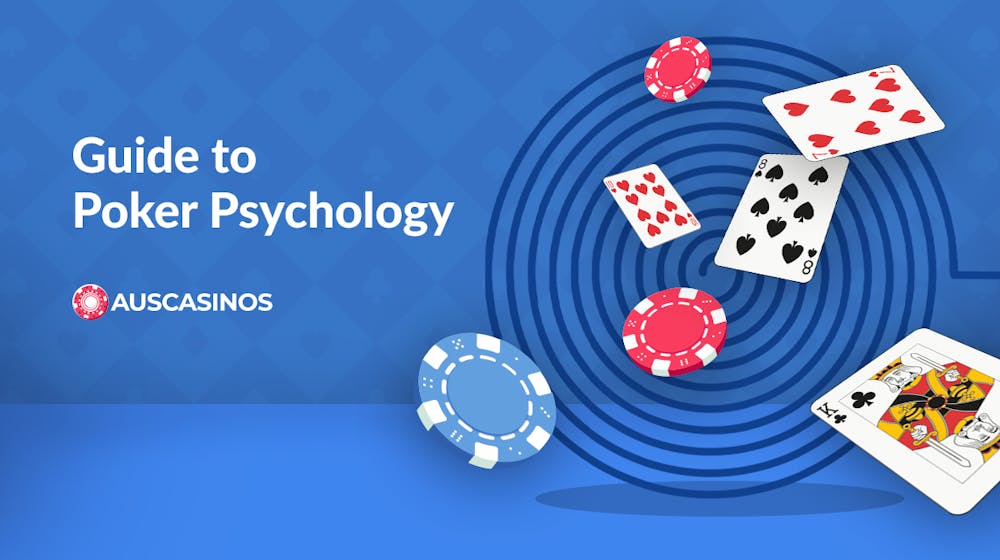
Picture yourself at the final table, with all eyes on you. What’s more important: the hand you’re dealt or how you play it?
How you choose to play is what’s referred to as the psychology of poker. It’s more than just learning the rules of the game. It’s about understanding your opponents’ emotions, thoughts, and behaviour – and then manipulating them to your advantage.
When you factor poker psychology into your game and let it impact your decision-making, it can give you an edge. One that can help you beat your opponents.
Let’s take a look at how poker psychology works, and how you can use it in a poker game.
What is Poker Psychology?
Poker psychology influences how you think and make decisions when playing poker.
But it’s not just about understanding your own emotional and mental state while playing poker. It also means studying your opponent’s emotions and behaviour. All of these impact your decision-making, helping you identify other players’ weaknesses and turn them into your advantages.
Understanding the psychological factors that influence the game, like fidgeting, nervousness and avoiding eye contact, can help you become a more successful player. By being aware of your own playing style, you can avoid making mistakes that could help your opponent win.
Poker is a mental game.
Have you ever thought poker is like a game of chess, but with chips?
It requires critical thinking skills, the ability to recognise patterns and good strategy. But just as importantly, it’s about psychological patience, resilience and staying focused under pressure.
Most players wouldn’t expect to win without understanding the rules of the game, working out the odds and developing some basic poker strategies. But just as important to winning is understanding the human side of the game. If you can master reading your opponent’s feelings and thoughts, it helps you to read their cards better.
The Importance of Observation
The most successful poker players know how important it is to observe their opponents. It’s a skill that requires patience and dedication. And there are plenty of non-verbal poker tells to watch out for during a game.
Watch how your opponent carries themself. Study their facial expressions, body language and gestures. Track the speed at which they make their decisions. Together, these signs can reveal plenty of valuable information.
Facial Expressions
Facial expressions can help you work out if you’re playing someone confident, nervous or frustrated.
Look your opponent in the eye. Are they avoiding eye contact? If so, they could be uncomfortable with their hand.
Do they have dilated pupils? This could indicate stress or excitement.
If your opponent is smiling or biting their lip, it’s typically a sign they’re nervous or excited.
Gestures and Posture
Have you ever noticed someone’s hand trembling when they make a bet? Small gestures and a player’s posture can tell you a lot about the hand they hold.
Watch out for players who suddenly sit very rigid. This can indicate they’re trying to appear strong, but in reality, they’ve got a weak hand. Slumped shoulders can also be a sign of a weak hand, with players subconsciously showing their disappointment in the cards they’ve been dealt.
Fidgeting is another tell. It’s a nervous habit that is usually indicative of anxiety or uncertainty.
Individually, these signs might not mean much, but once you start watching more closely, it won’t take you long to be able to use these signs to your advantage in a poker game.
Betting Patterns
The way your opponent makes their bets can be another tell. If they’re making fast, rapid bets, they’ve likely got a strong hand they’re looking to capitalise on. If they’re hesitating a lot, it might signify uncertainty in a game which could mean their hand is weak.
If someone starts betting overly aggressively, they might be trying to bluff their way to a win.
The more you study your opponent, the more you can learn and adapt your own playing style.
Bet Size
The size of bets during a poker game can also reveal a lot about an opponent. Unless they’re bluffing, a large bet typically represents a strong hand, while smaller bets can indicate a weaker hand.
Online Poker
If you’re playing online poker, it’s more difficult to look for player tells. But there are some things you can watch out for, such as chatbox activity.
Look for patterns in chat rooms to get insights into specific opponents. Just be wary that some players may want to engage in conversation purely to mislead you as part of their own psychological strategy.
Emotional Intelligence
Emotional intelligence is your ability to perceive, use, manage, understand, and handle emotions positively.
In a game of poker, having emotional intelligence helps you control your emotions. You can learn to become a better poker player by developing a strong mindset. It can also help you to understand other player’s emotions better to read their game.
Poker isn’t just about skill. It requires emotional control, mental toughness and discipline. The best poker players in the world are those who can manage their emotions effectively and remain focused, even under pressure.
Emotional intelligence can help you to overcome what’s known in poker as ’tilt’. Tilt is a poker term that describes a player’s emotional state when angry or frustrated. Tilt can negatively impact your ability to make good decisions, which can impact the game’s outcome.
How to Avoid the Tilt
Here are some ways you can avoid the tilt while playing:
- Take regular breaks: If you’re getting frustrated while playing, or you’re maybe losing money, take a break. If you’re in a physical casino, walk away and return when you feel calmer. If you’re online, turn off your computer for a while, go for a walk and take some deep breaths.
- Set realistic goals: Make sure the goals you set for yourself while playing poker are realistic. While gambling can be fun, you can’t win every game. Ensure you’re enjoying playing the game rather than just for the thrill of a win.
- Practice mindfulness: Taking a deep breath, visualisation, and meditation can all be useful strategies to help you stay focused during a game. Particularly if you’re playing a poker tournament where it’s critical to remain focused for long periods of time.
- Be positive: Stay positive and focus on your opportunities rather than challenges. As a poker player, use any setbacks to learn and apply these to future games.
- Avoid mistakes: Are you being led by fear, greed or impatience when playing? Addressing your own emotional issues during a game can help you avoid making mistakes and losing money.
The Psychological Tactics
Ever done the ol’ bait and switch with your expressions?
Bluffing is an essential part of playing poker. It’s the art of making your opponent think you have a stronger hand than you have so they’ll fold their own hand.
It’s a skill that relies heavily on body language and reverse psychology. Often, one of the best ways to sell a bluff is to do the opposite of what your opponents are expecting. For example, if you have a weak hand, acting confidently or aggressively can help to convince your opponent that you’ve got a strong hand.
Body language is a great way to create a false narrative for your opponent. You can use subtle expressions or gestures to intentionally mislead your opponents. This is known as a ‘false tell’ and is used to help create confusion during poker games to gain an advantage.
Bluffing Tips
Here are some of our top tips for bluffing like the best poker players.
- Timing is Everything: Be patient. A well-timed bluff is the most successful. Watch the poker table to work out the perfect moment by watching other players.
- Hand Read Your Opponents: You need to consider the strength of your opponent’s hands to determine if your bluff will be successful. Study their playing habits and choose your moment based on their tendencies. For example, how often do they typically call or flop?
- Don’t Over-Bluff: If you mindlessly attack weak players, you can get caught out in the long run. Combine the power of psychology with your long-term poker strategy.
- Consider Your Bet Size: Consider your regular bet size when you bluff. If you’re betting vastly different amounts for your bluffs versus your value bets, your opponents will likely know something is up and call your bluff.
- Watch Your Expression: Keep your face as natural as possible, and be mindful of your own body language. A sudden smile or sudden eye movements could give you away and see you lose.
Table Image & Metagame
Table image is about how opponents perceive you, whether you’re playing at a physical or at an online casino. It’s influenced by how you play the game. For example, whether you’re cautious or aggressive.
What you do and say during a game can also shape others’ opinions of you. If you’re loud and brash your opponents are likely to think you’re a loose player who is just out for some fun. If you’re quiet and reserved, people might think you’re cautious and unlikely to make risky moves during games.
More often, it’s your actions that matter when it comes to table image. Regarding the psychology of poker, crafting the right table image can be the difference between winning or losing games.
Why Table Image Matters
Creating a table image helps you to control the game emotionally. Your opponents will be less likely to guess what your next move and you’ll be more likely to succeed in bluffing if you’ve established the right image.
For example, loose-aggressive players are more likely to bet and raise in earlier rounds, which may make your opponent more likely to call. In contrast, if you’ve created a tight image, your opponent may be more likely to fold.
Being able to adjust your table image can also help you win. Altering your approach can mean you’re seen as unpredictable, and someone who can’t be beaten easily.
The Role of Metagame
Metagame can be referred to as the ‘game within the game’. In a game of poker, it’s when you make a decision that’s influenced by external knowledge. Rather than one that’s based purely on poker strategy.
It’s not about the cards you hold or the size of the bets. It considers the potential results of any actions you take during the game. It’s all about trying to get inside your opponent’s head to figure out what they’re doing and why.
To help, consider asking yourself:
- Why did they do what they did?
- How do they want me to perceive their move?
- What action are they trying to provoke me to do?
- How should I respond?
Metagame can be more effective if you’re playing an opponent you’ve played previously. You might already understand some of their personality traits and how they typically react in different scenarios.
Risk and Money Management
When you gamble for real money, there’s always risk. The psychology of risk is about understanding the mental processes underlying our response to risk. Recognising the impact of risk can help us make sound judgements when we play poker.
Experienced players understand risk management. They manage the risk of losing by using different betting strategies, such as only placing small or incremental bets when they first sit at a poker table. They also take calculated risks based on the strength of their hand or how well they’re playing overall.
Studying your opponent can help you to identify their risk appetite, which influences how they play. It can also help you to effectively manage your own bankroll, by adjusting your bet size based on your opponents.
But remember, regardless of what your opponent is doing, only risk money you can afford to lose. And play stakes in line with your skill level and budget. Being disciplined and having patience can pay off in the long run.
What Is Gambler’s Fallacy?
Gambler’s fallacy, sometimes known as the Monte Carlo fallacy, is a mistaken belief that if an event occurred frequently in the past, it’s less likely to occur in the future (or vice versa). In reality, these events have no bearing on each other whatsoever. For example, if a coin lands on heads three times in a row, Gambler’s fallacy would have you assume the next toss is likely to be tails.
It can be crucial in how a poker player thinks during a game. For example, if a player has a string of poor hands, Gamber’s fallacy may assume their next hand will be a winning hand. So the player will continue to play on, even if they risk losing significant money.
Think you can defy the odds?
To help avoid Gamber’s fallacy, you need to be aware of it. Remind yourself the cards drawn in one game have no impact on the cards drawn in the next round. Observe your opponent’s behaviours. Assess whether Gambler’s fallacy appears to influence their decision-making during play.
This can help influence your own poker strategy.
The Importance of Mental Resilience
Mental resilience is essential if you want to succeed in poker. Poker is all about playing each hand as well as you can. Sometimes, you’ll get poor hands. Other times, you’ll get lucky.
There’ll also be times when you’ll have to deal with bad bets. But rather than dwelling on losses, try to reset your mind and start each hand from scratch.
Building mental strength is important to develop mental toughness. Being mentally tough allows you to cope better than opponents when you lose. It also helps you to be more consistent, determined and focused during a game.
If you can’t stand the heat, maybe stick to Go Fish.
But if you want to build mental resilience, here’s a few tips to consider:
- Maintain a positive attitude
- Don’t accept defeat, even if you’ve played poorly
- Plan your hand
- Always present a strong image at the table regardless of how you’re feeling
- Be present and only focus on the table when you’re playing
- Maintain a strong desire to win
- Take your time when placing bets
- Be flexible during the game
- Take smaller risks first before building up to larger risks
- Set clear goals that you want to achieve for each game or poker tournament
Case Studies
In the poker world, every decision you make throws off signals. And the best players know how to read them. Many of the top poker players use poker psychology to win. Because, more often than not, it’s not the best hand that wins when you play poker, but the best player.
In the 1998 World Series of Poker Match Up, Johnny Chan showed us the art of ‘slow playing’ when he masked an excellent hand while playing a restrained game against Erik Seidel.
Seidel has also spoken about the importance of emotional intelligence as a poker player, including how essential it is to separate disappointing outcomes from the game. In high-stakes games, regulating your emotions is the key to making calculated bets like a pro.
Other professional poker players, like Daniel Negreanu, have shown us the importance of resilience and patience. He takes his time, doesn’t rush play and maintains his focus with mental stamina. He realised the importance of goal setting, visualisation and mindfulness long before the vast majority of professional poker players.
Doyle Brunson, who no longer plays, was known for his legendary bluffing skills. He used psychological tactics like ‘mirror neurons’, manipulating his opponents’ strategies and perceptions. Phil Ivey demonstrates his mental toughness by adopting stress management techniques, such as controlled breathing, to keep him composed under pressure.
Conclusion
Learning about the psychology of poker can help give you the upper hand over other poker players.
The next time you play, try observing your opponent’s facial expression, gestures or poses. If you’re playing online poker, look at the players betting style or bet sizes to help you understand their thinking.
Try to improve your emotional intelligence so you know your own playing style. Having this knowledge can let you improve your poker strategy. And don’t forget to be aware of your table image and craft an image you want to help you win.
Finally, remember to consider the psychology of risk and money management. Risk tolerances will differ for most poker players, significantly impacting how they play the game.
Now that you’re armed with these psychological hacks, are you ready to become the king or queen of the poker table?

Emily is our seasoned content writer. She writes easy to read and helpful game guides, so you can quickly understand the rules of each game and get some useful tips that can help boost your chances of winning.
Read more about the author